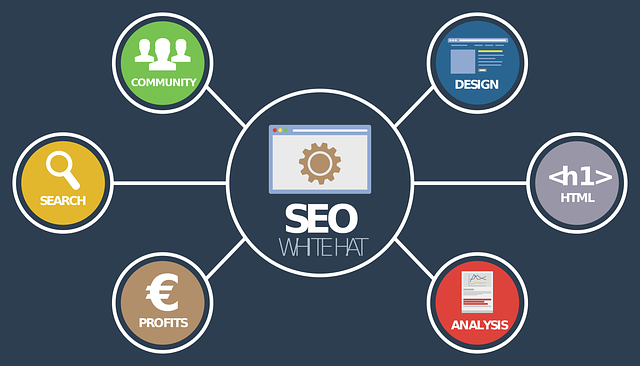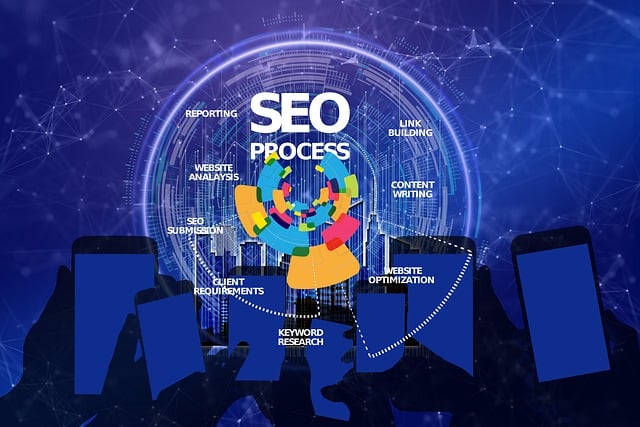Off-Page SEO is a strategy focused on improving search engine rankings by engaging external websites and factors beyond direct control, primarily through acquiring high-quality backlinks from reputable sources. These backlinks act as trust signals, enhancing credibility and increasing the likelihood of appearing higher in search rankings for relevant keywords. Key Off-Page SEO tactics include guest blogging, influencer outreach, broken link building, social media marketing, and creating shareable assets. Measuring success involves tracking key metrics like backlink quality and quantity using tools like Google Search Console and Ahrefs. A robust strategy maintains a diverse, high-quality backlink profile, avoids toxic links, emphasizes strategic diversity in anchor text, and prioritizes quality over quantity to ensure long-term SEO success.
External link building is a cornerstone of Off-Page SEO, playing a pivotal role in search engine rankings. This strategy involves attracting high-quality backlinks from reputable sources, signaling to search engines your website’s authority and relevance. This article delves into the intricacies of Off-Page SEO, exploring its definition, benefits, and best practices. We’ll guide you through identifying quality backlinks, popular acquisition methods, measuring success, and avoiding common pitfalls in link building efforts.
Understanding Off-Page SEO and Its Role in Search Engine Rankings
Off-Page SEO refers to a set of strategies that focus on improving search engine rankings by leveraging external websites and factors beyond your own site’s control. It involves building high-quality backlinks from reputable sources, which signal to search engines that your content is valuable and trustworthy. This process helps establish your website’s authority and relevance in the eyes of search algorithms.
The role of Off-Page SEO in search engine rankings cannot be overstated. Search engines like Google use complex algorithms to crawl and index websites, and these algorithms consider numerous factors when determining a site’s position in search results. Backlinks play a pivotal role in this process, acting as votes of confidence from one website to another. When high-authority sites link to your content, it boosts your credibility and increases the likelihood of appearing higher in search rankings for relevant keywords.
The Definition of External Link Building Strategies

External Link Building refers to strategies aimed at acquiring backlinks from other websites, which are external to your own domain. These links serve as votes of confidence from one site to another and significantly impact a website’s search engine optimization (SEO) performance. Off-Page SEO, a crucial component of search engine rankings, focuses on building these external links to enhance a site’s authority and visibility in search results.
By establishing relevant and high-quality backlinks from reputable sources, websites can signal to search engines that their content is valuable and trustworthy. This process involves various tactics such as guest blogging, influencer outreach, broken link building, and creating shareable assets like infographics or research studies. Each strategy aims to naturally attract links from other websites, thereby improving the overall Off-Page SEO profile of a domain.
Key Benefits of Implementing Effective Off-Page SEO Techniques

Implementing effective Off-Page SEO techniques offers a multitude of key benefits for any website looking to boost its online visibility and search rankings. By focusing on activities outside of your site, such as earning backlinks from reputable sources, engaging in social media marketing, and securing mentions from influential figures, you can significantly enhance your site’s authority and trustworthiness in the eyes of search engines like Google. These external signals act as a vote of confidence, indicating to search algorithms that your content is valuable and deserving of higher rankings.
Moreover, Off-Page SEO plays a pivotal role in diversifying your website’s online presence. Unlike On-Page optimization, which primarily deals with internal factors, Off-Page strategies direct attention towards the broader digital landscape. This includes building relationships with industry leaders, contributing to relevant online discussions, and leveraging social media platforms to create buzz around your brand. Such efforts not only drive traffic but also foster a sense of community and credibility, ultimately leading to improved user experience and engagement metrics – crucial factors that search engines consider when determining site quality.
Identifying High-Quality Relevantly Structured Backlinks

Identifying high-quality backlinks is a strategic art in Off-Page SEO. These links should be sourced from reputable and relevant websites that share similar content or interests with your niche. When evaluating potential backlink opportunities, focus on sites with established authority and a structured layout. Well-organized websites typically indicate good link building practices, ensuring the backlinks you acquire are valuable assets to your search engine rankings.
Relevant links from authoritative sources signal to search engines that your content is trustworthy and deserves higher visibility. Look for opportunities where you can earn or naturally acquire these backlinks, such as through guest blogging on influential industry sites, creating shareable infographics, or offering unique resources that media outlets and influencers want to link to.
Popular Methods to Acquire Quality External Links

In the realm of Off-Page SEO, acquiring quality external links is a pivotal strategy to enhance your website’s authority and visibility. One popular method is guest blogging, where you contribute content to reputable websites in your industry. This not only exposes your brand to a new audience but also earns backlinks from authoritative sources, boosting your search engine rankings. Another effective approach is broken link building, which involves identifying broken links on relevant sites and offering your content as a replacement. This strategy capitalizes on the opportunity to insert a working link back to your site, improving both your site’s SEO and user experience.
Social media engagement plays a significant role as well. By actively participating in online communities and sharing valuable content, you increase the chances of natural links from social media platforms. Influencer outreach is another powerful technique, where you collaborate with industry influencers who can share or link to your content, leveraging their established audience and authority. These methods, when executed strategically, contribute to a robust Off-Page SEO profile, driving organic traffic and improving your website’s overall online presence.
Measuring Success: Analyzing Off-Page SEO Performance

Measuring success in External Link Building, a key aspect of Off-Page SEO, involves tracking metrics that indicate the effectiveness of your link-acquisition strategies. By analyzing backlinks from reputable and relevant sources, you can gauge the quality and quantity of these incoming links, which is crucial for boosting your website’s search engine rankings. Tools like Google Search Console and Ahrefs can provide valuable insights into the performance of your Off-Page SEO efforts.
Regularly monitoring where your website gains backlinks—whether from industry authorities, reputable news outlets, or influential bloggers—helps identify successful outreach strategies. Additionally, keeping an eye on metrics such as Domain Authority (DA) and Page Authority (PA) associated with these links can offer a deeper understanding of the impact on your site’s SEO performance. This analytical approach ensures that your External Link Building efforts are not just generating links but also driving meaningful traffic and improving your website’s overall search engine visibility.
Best Practices for Maintaining a Healthy Backlink Profile

Maintaining a robust and healthy backlink profile is an integral part of any successful Off-Page SEO strategy. The practice involves cultivating high-quality backlinks from reputable sources, which act as votes of confidence in your website’s authority and credibility. A well-rounded approach includes diversifying link sources to avoid over-reliance on a single referral point. This can be achieved by creating engaging content that naturally attracts links, such as in-depth research pieces, infographics, or interactive tools. Collaborating with industry influencers and other relevant websites for guest blogging opportunities is another effective strategy to earn high-quality backlinks.
Additionally, monitoring and managing your backlink profile regularly is crucial. Utilize SEO tools to keep track of new links pointing to your site, as well as any potential toxic or low-quality links that could negatively impact your rankings. Promptly disavow or address these issues to maintain a clean and healthy link profile. Regularly updating old content to keep it relevant can also encourage existing backlinks to be refreshed and updated, contributing to long-term SEO success.
Common Mistakes to Avoid in Link Building Efforts

In the realm of Off-Page SEO, link building is a strategic art; however, even seasoned professionals can fall victim to common pitfalls. One of the most frequent mistakes is neglecting diversity in anchor text. Using the same or similar text across multiple backlinks can raise red flags for search engines, potentially resulting in penalties. Each link should be unique and contextually relevant to the target page’s content.
Another blunder to avoid is focusing solely on quantity without quality. Building a vast network of links without regard for their source or authority can hinder rather than help your rankings. High-quality backlinks from reputable websites within your niche carry more weight. Prioritize acquiring links from trusted sources, ensuring they are natural and earn your site’s placement, rather than relying on low-quality or spammy link farms, which may damage your website’s reputation in the long run.
